Story
Summary: I feel like I was thrown in the Bermuda Triangle and was asked to swim and pull boats with me in the middle of a storm. This is my best endeavour to help Ukrainians during the humanitarian crisis started by Russia.
I will focus on the situation in Chernivtsi, a Ukrainian city close to my hometown (Botosani) that I’ve visited and passed through a few times, including this Friday (18th of March).
Help needed:
1.Non-perishable food - either directly supplies or donations to purchase them.
2.Donations for Alina’s family and for all the 15 refugees in Silvian’s house in Chernivtsi.
Biggest problem: there’s not enough aid to maintain Ukrainains alive. Ukrainians need all the possible help YOU can give.
Second biggest problem: the lack of information, contacts and resources on the ground for the people / organisations who want to send aid to Ukraine (warehouses and clearance). Solved - details below.
Background
I am a regular civilian trying to support Ukraine. Judging by my last name, my roots are somewhere in that area and I have strong personal ties with Ukraine and the Ukrainian people.
On the 25th of February, the 2nd day of the Russian invasion, I happened to fly to Suceava, in Romania, 1h away from the Ukrainian border. I helped a friend’s family in Romania and wrote this article
https://medium.com/@caziuc/day-2-of-war-at-the-ukrainian-romanian-border-ed6200a06f59
I did not expect that many people to see it and somehow I ended up being the first point of contact in Romania for people all over the world.
Friends, friends of friends and acquaintances reached out asking for help. I was parachuted in a lot of Whatsapp and Telegram chats. Since then, I evacuated several families, found them accommodation in Romania.
Fast forward to nowadays - I got involved with Romanian and Ukrainian authorities, NGOs, public and private companies, lots of people willing to help and even more people needing help. I also work with a non-profit in the US that I will name later.
I went to Ukraine on the 18th of March to partner up with local organisations.
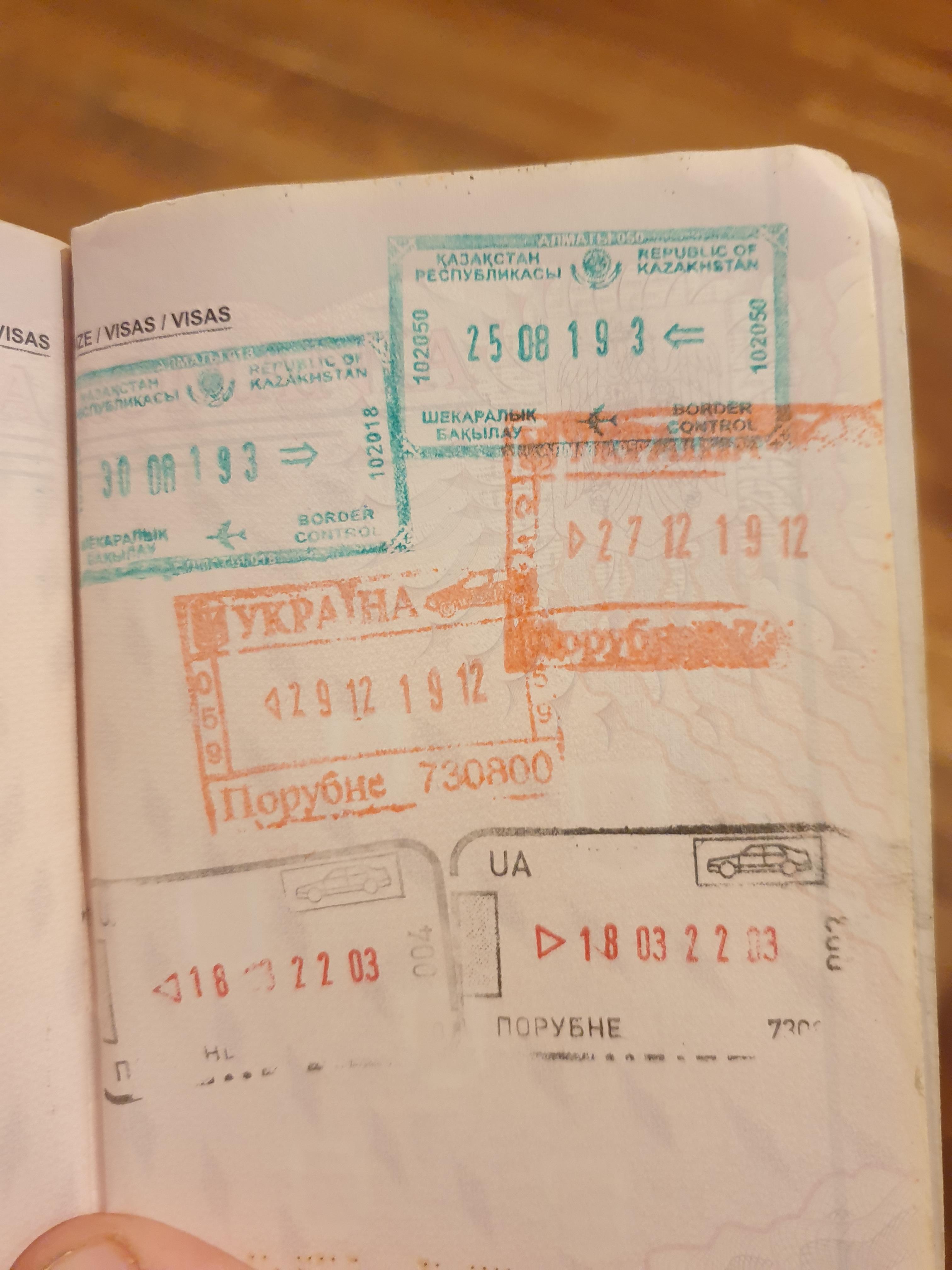
Biggest area of support: establishing a strategic corridor for more humanitarian aid to pass through.
Chernivtsi
There are 50,000 official refugees in Chernivtsi who don't want to leave Ukraine. They have never travelled abroad, some of them even outside of their hometown. Most of them are afraid of not being able to manage in Romania or other neighbouring countries because they don't speak the language and they don't have savings. However, there's not enough food for everyone.
Our team of volunteers has been working around the clock to establish a process of taking humanitarian aid to Ukraine. It’s hard to get things done by phone or email, so I physically went to Siret and Chernivtsi to sort things out on the 18th of March.
I quickly sorted out a warehouse in Siret and transportation across the border. Then I headed to Chernivtsi.
In Chernivtsi I met:
1. Silvian Rusu, Director of the Ukrainian-Romanian Business Centre
2. Victor Kmita, CEO of XME Digital Solutions and his colleague Tetyana B.
3. Bogdan Ivanovich Kovalyuk, First Deputy Head of the Regional Military Administration
4. Oleksandr Kalancha, CEO of the Chernivtsi Business Group
1. Silvian is 42 and has lived his entire life in Chernivtsi. Two of his friends are confirmed to have died on the front in the past weeks and he hasn’t heard from several others.
When the war started, many Ukrainians in the conflict areas left for safer places. He is currently hosting 10 refugees in his flat and another 5 at his mother in law’s. Alina is one of the young mothers taking shelter in Silvian’s house. There is a food bank for refugees. They have to show their ID to prove they’ve been relocated.
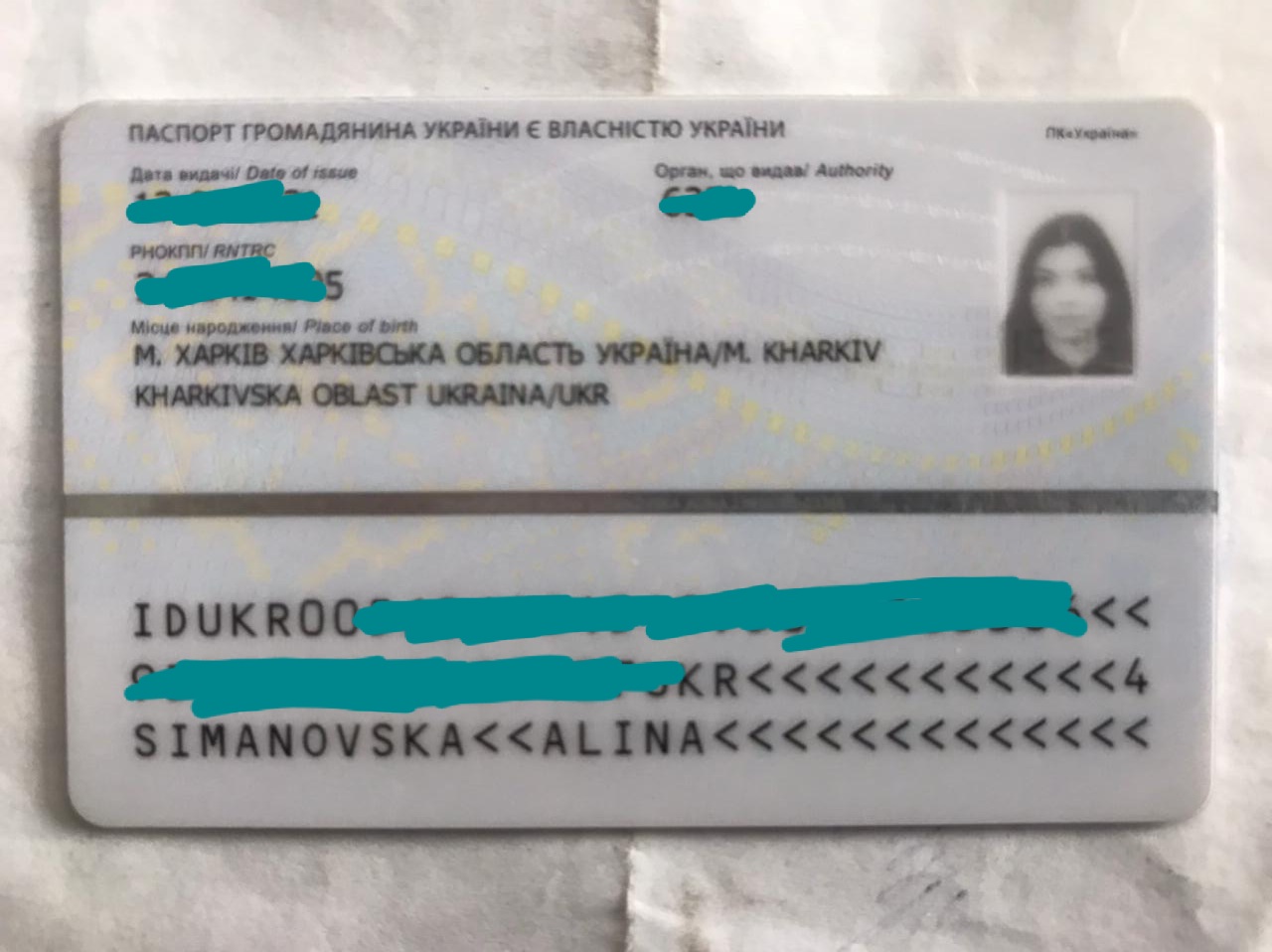
Alina’s ID. Her registered address is in Kharkiv, one of the most bomb-struck areas. She is my age.
On Thursday, she got 1 pack of rice and 2 chocolates for her entire family. She never knows what she’ll get the next day or if there will be any food at all. I cannot imagine what being in her shoes feels like.
Another refugee family had to hide in their cellar for 10 days. It’s a small, cold, damp place where they stored potatoes and other vegetables. They didn’t have food for the kids and when the bombing stopped, they got out and made it all the way to Chernivtsi with no plan. They were sick, hungry and had lice. in their hair.
I’m asking for your help to send Alina, her family and the other families some pocket money. Their savings combined amount to 40,000 hryvnias. That’s 1,200 EUR. They have 15 mouths to feed and no source of income until the war is over.
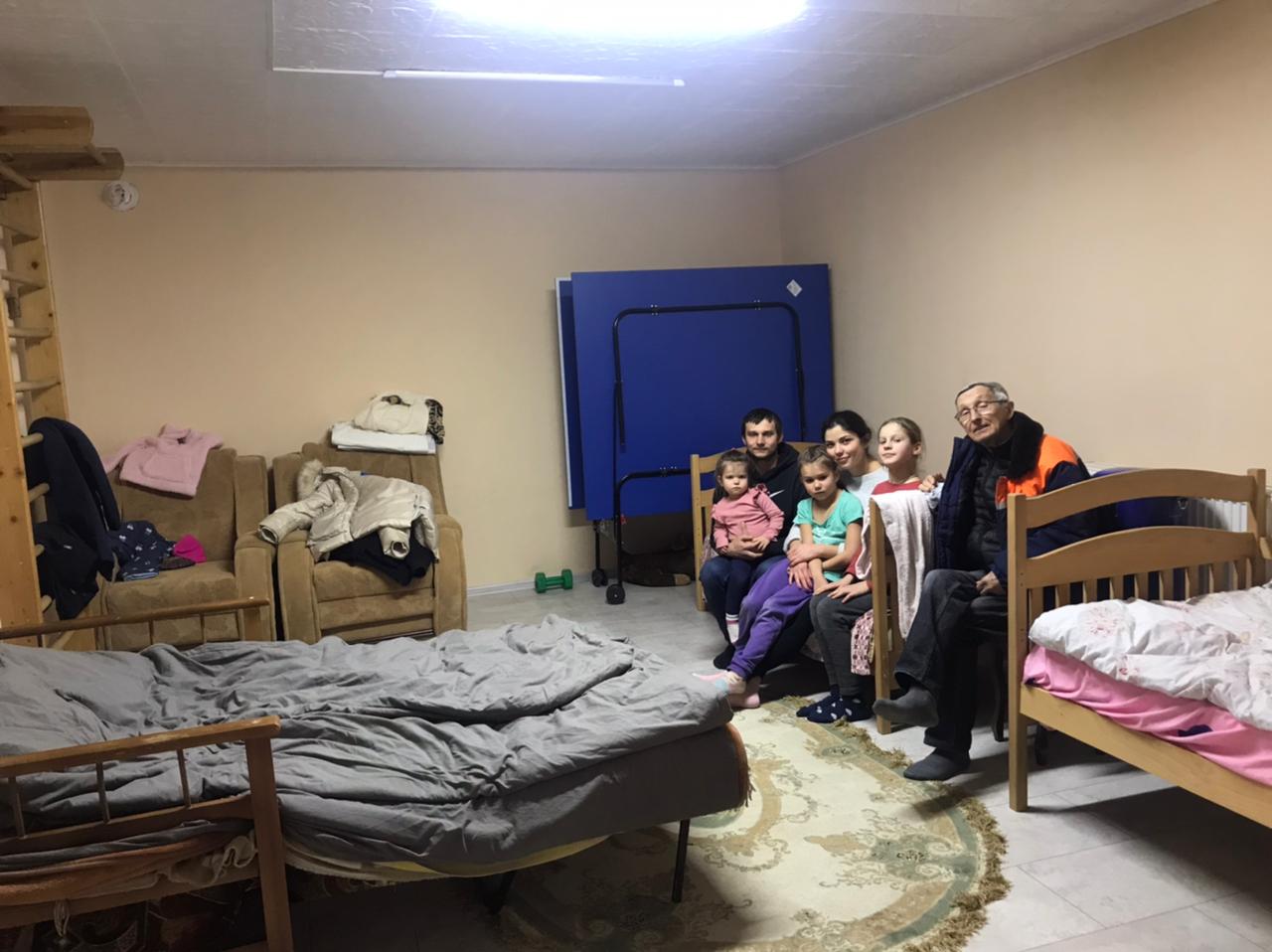
Alina and her family in Silvian’s house in Chernivtsi.
2. I met Victor Kmita on the Techfugees whatsapp group for Ukraine. He runs his own software development company (XME Digital) with 80 employees. 40 of them live in Cherniviv - one of the most dangerous places in Ukraine right now. Victor flew from Cyprus, where he lives, to Chernivtsi, to evacuate as many of them and take care of the ones who wanted to stay.
Victor raised over $200,000 from his own personal network and is doing a hell of a job in supplying basic goods to Ukrainians in the war-torn areas: power banks, generators, radio stations, bulletproof vests and helmets, thermal clothes, medical aid and food. He has a logistics infrastructure going straight to the front lines (today he personally delivered the goods in a dangerous area). I hope to hear back from him tomorrow.
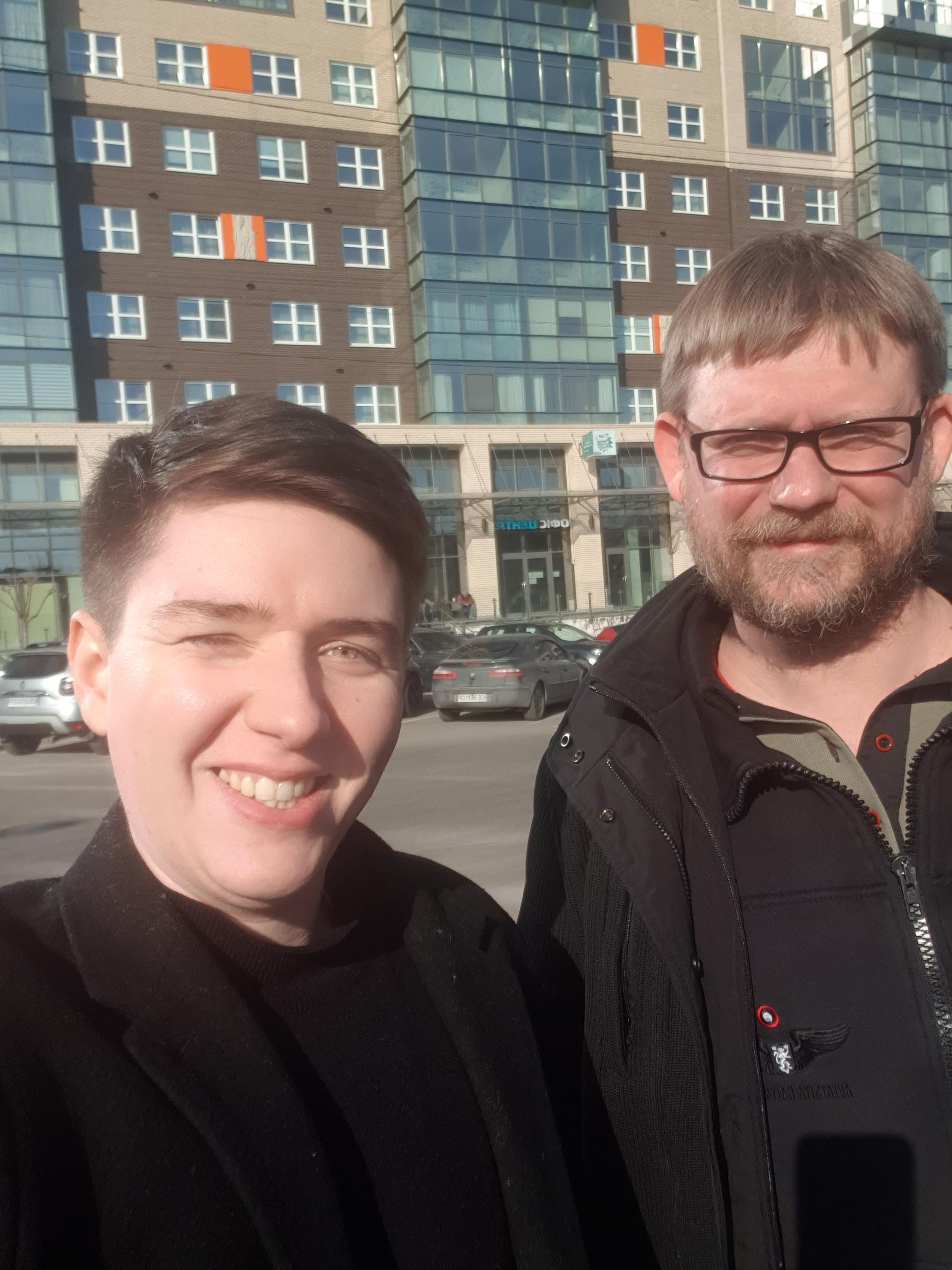
This man needs to be helped because he’s doing a great deal of good for Ukrainians when all the international aid did not prove to be sufficient for their needs.
3. I told one of my Ukrainian acquaintances that I will need the help of an official entity on the ground to receive the goods and provide visibility over their use. I did not expect the introduction he made.
I met Bogdan Ivanovich Kovalyuk at a high-security hub for humanitarian aid. I wasn’t allowed to take any pictures from the outside and it was guarded by troops with AK47s.
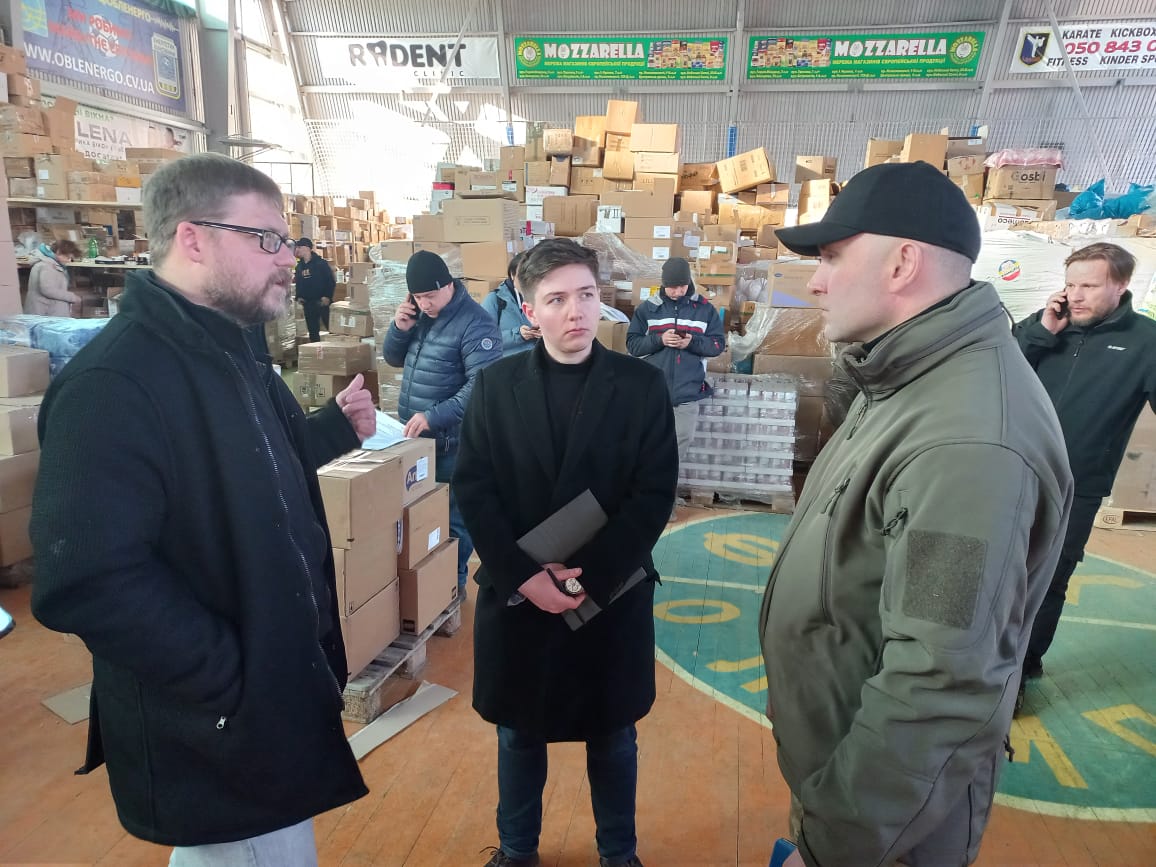
Victor (left) joined me at the logistics hub and translated the conversation with Bogdan (right).
The military runs the hub and it is operated by tens of volunteers working around the clock to handle and distribute the supplies. The shortages are worse than what's being said on social media or in the press. The army gave us warehouses and clearance to get aid across the border. They can provide the end to end paper trail from the moment of receiving it to the final destination (unless classified - the front).
Below are photos from the inside and a list of the most urgently required goods in Chernivtsi and on the front. Most of the people can’t even warm up food, not to mention cook anything. That’s why high-calorie non-perishable goods are required to keep people alive in combat areas.
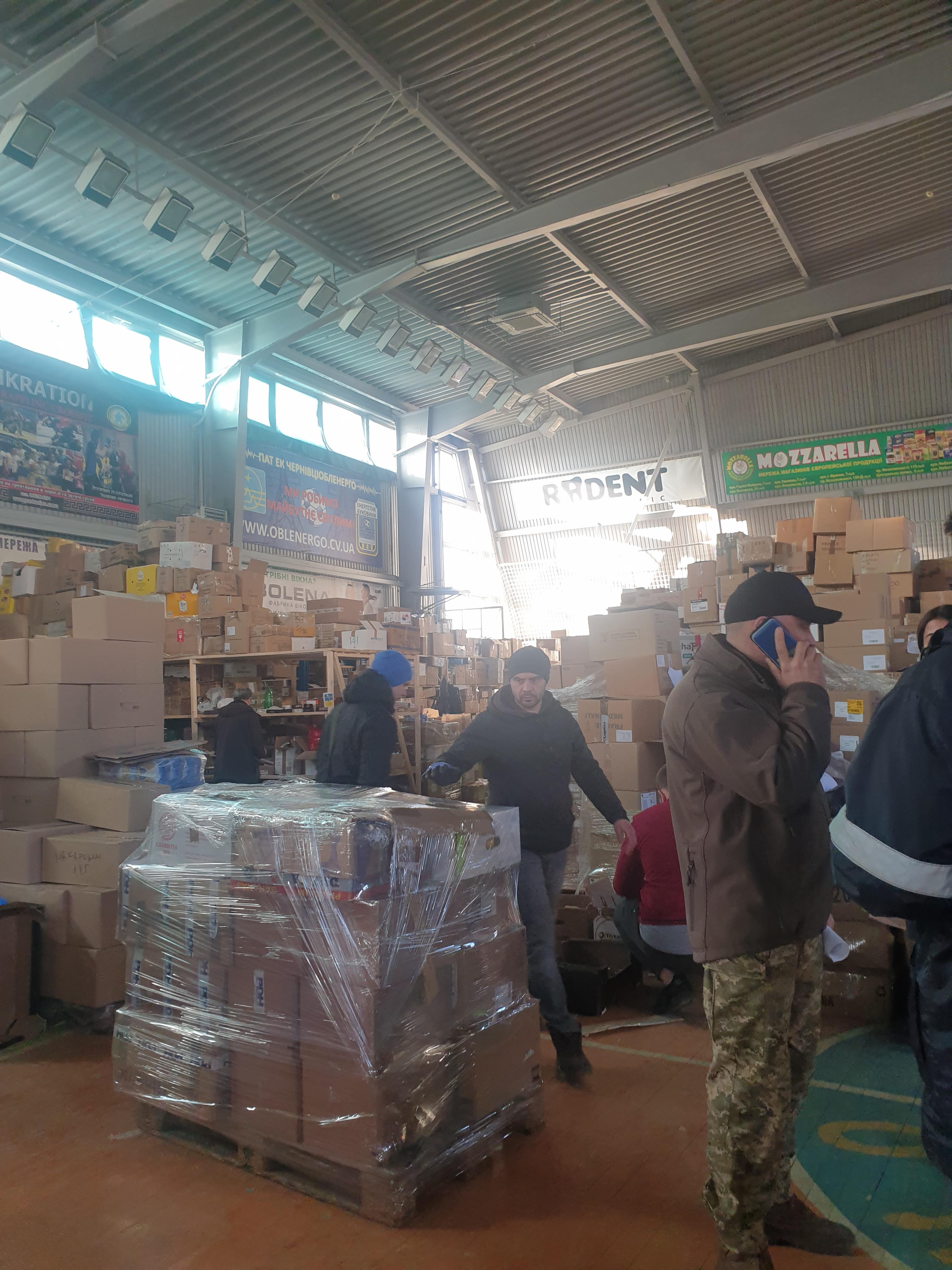
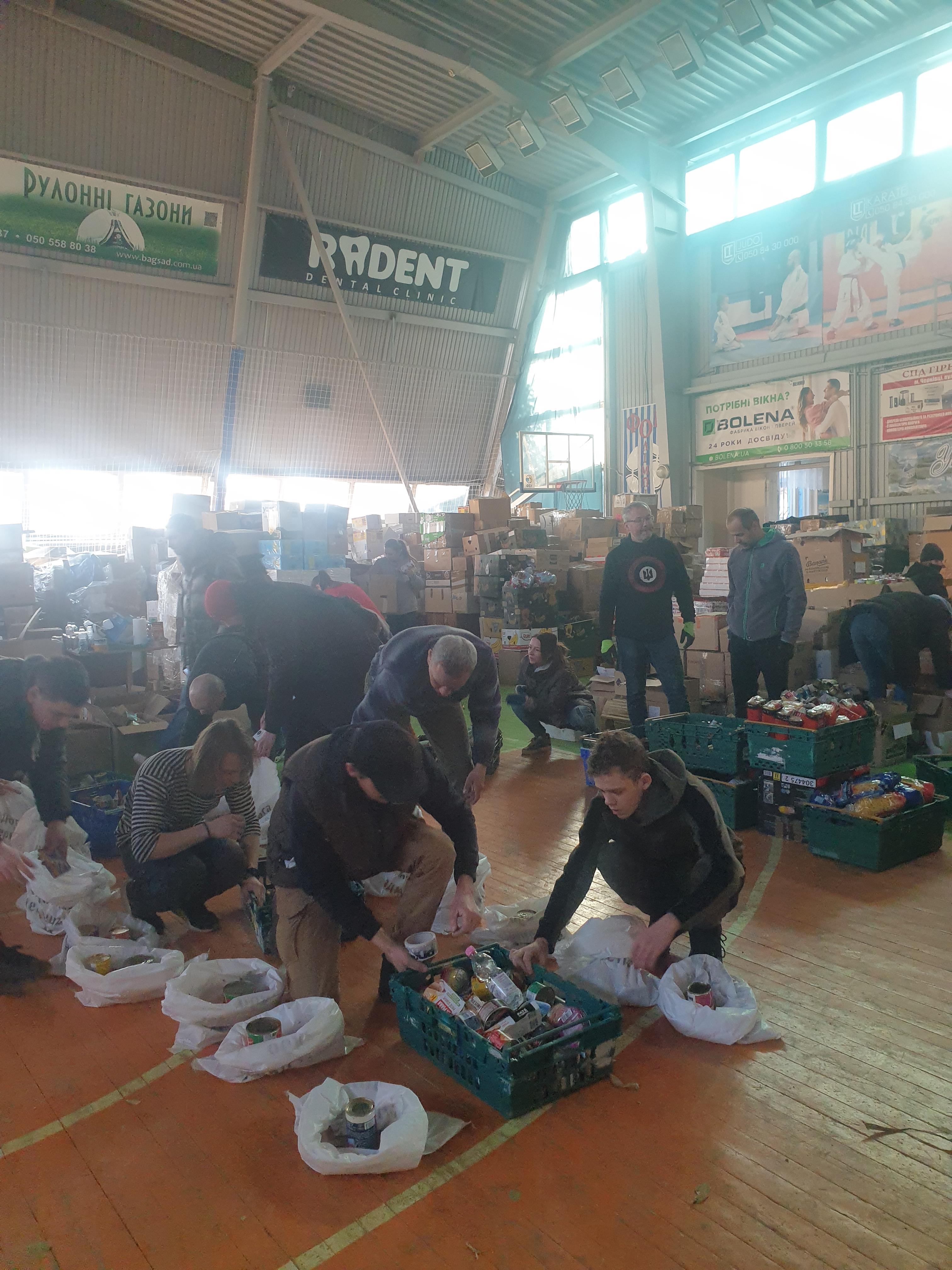
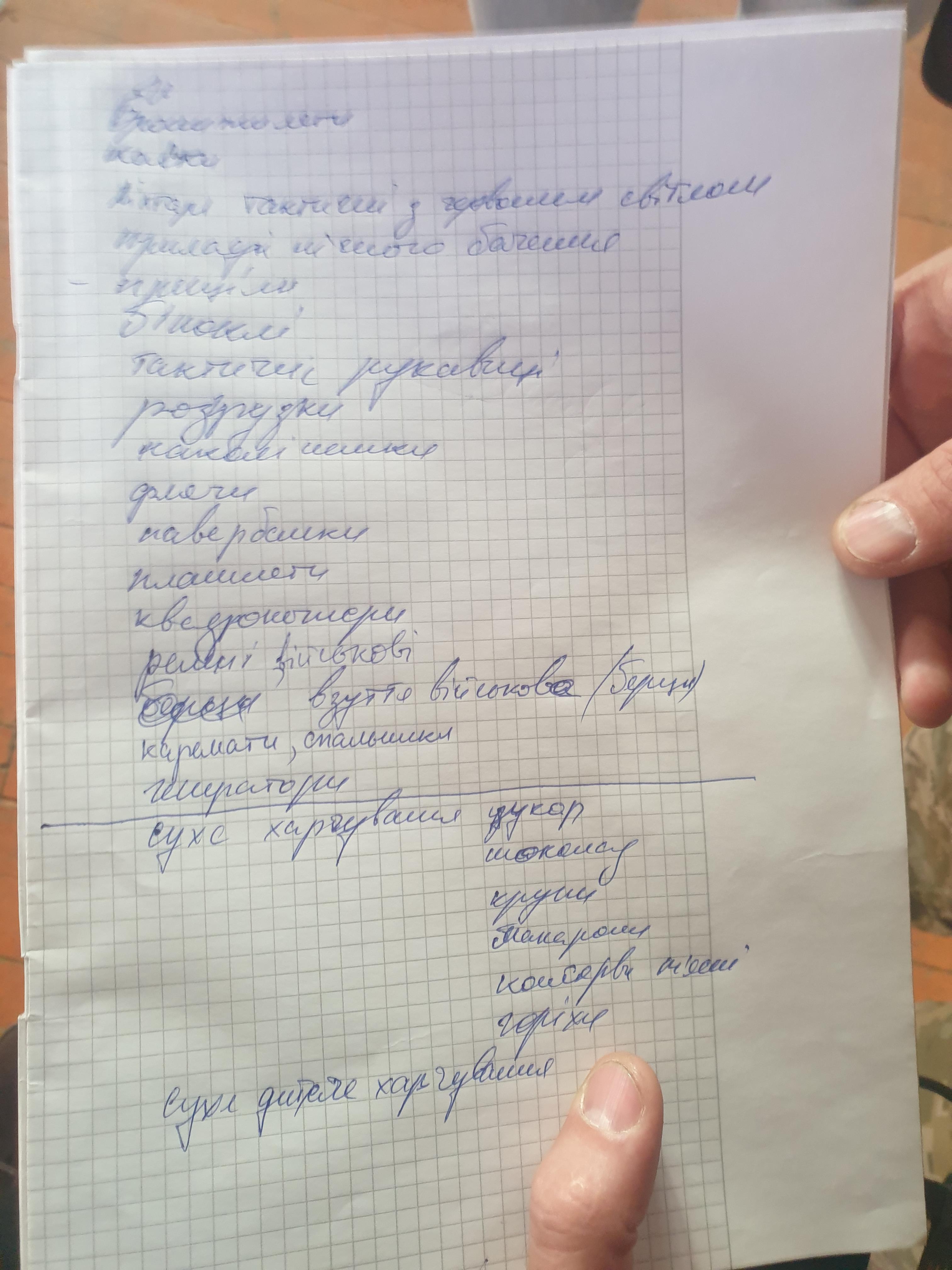
Bogdan’s list of the most urgently required goods: Knee pads, flasks, power banks, drones, military belts, boots, mats, sleeping bags, sugar, chocolate bars, cereals / grains, pasta / noodles, canned meat, nuts.
4. Oleksandr and his team at the Chernivtsi Business Club are arranging logistics for humanitarian aid drop off. They have a formal NGO and can sign off for the receipt and inspection of aid. They’ve raised a considerable amount for supplies by themselves. If we send goods to Ukraine, they will take care of storage and handling.
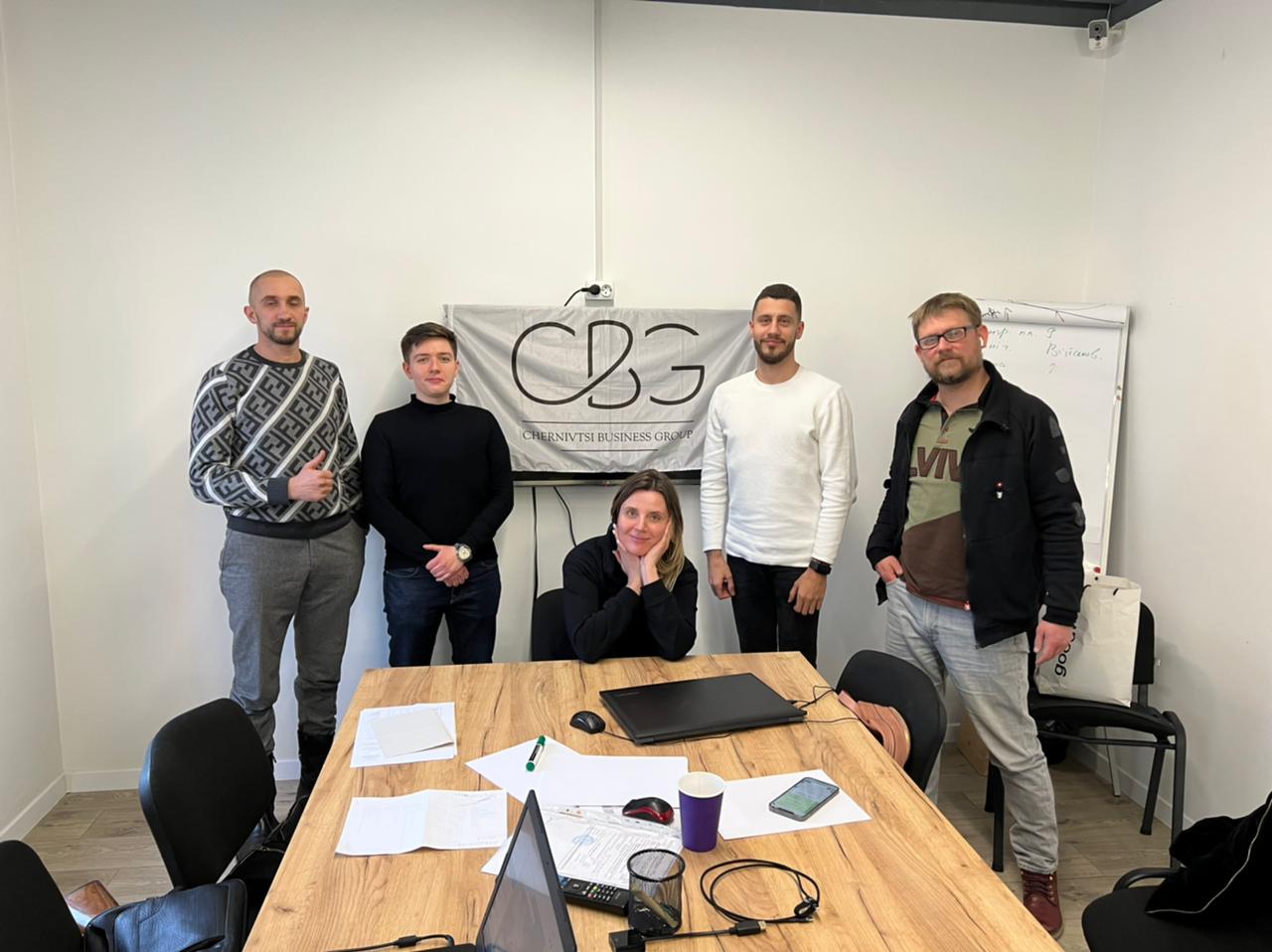
Meeting Oleksandr (centre-right) with Victor Kmita (right) and Tetyana (middle).
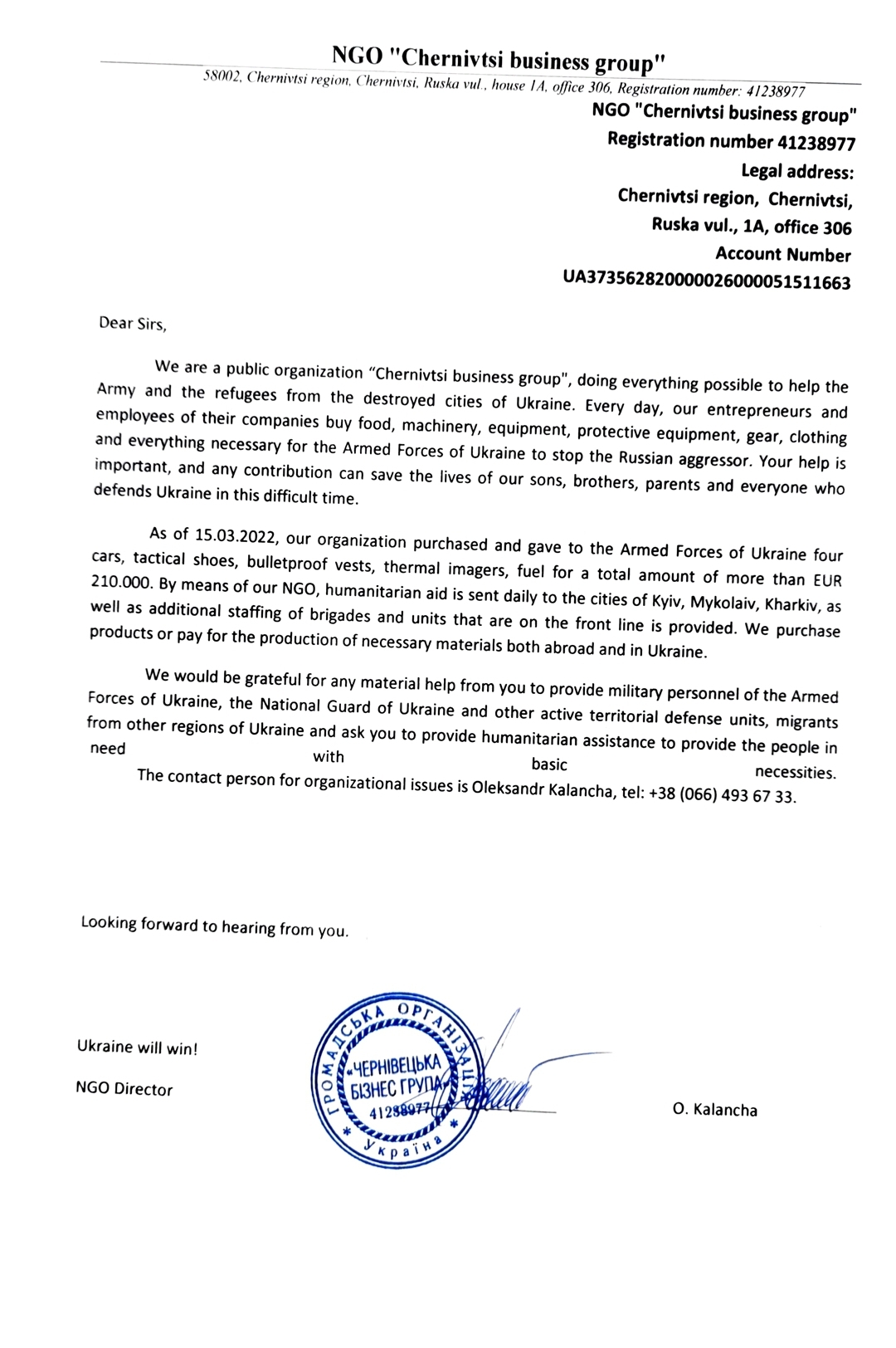
Everyone mentioned above and many others helped set up a strategic corridor of supplies. Yes, there are plenty of organisations who send aid. However, warehouses are overwhelmed and there are big logistics bottlenecks. I’m just trying to play a small part and assist as much as I can.
If I know that with every can of food sent, there is one less person going to bed hungry, I can say that I didn’t cast my shadow on earth in vain (very Romanian expression). If you can help in whatever way, please do so. The Ukrainians and I will be forever grateful.
This war might not be our fault, but it’s our responsibility to do something about it.
Slava Ukraini!